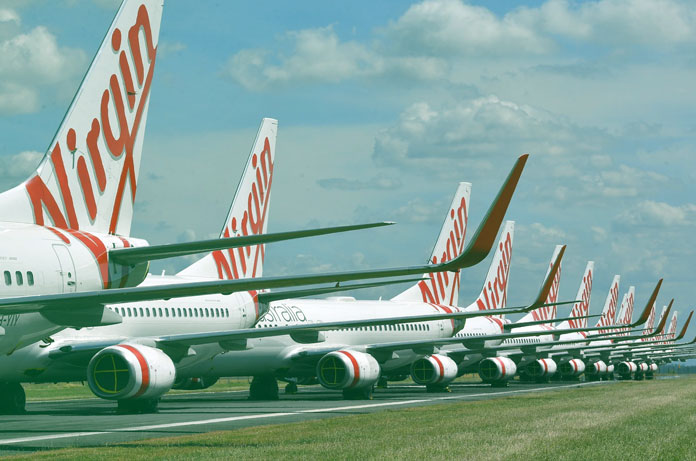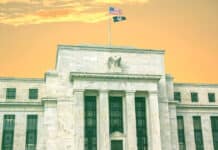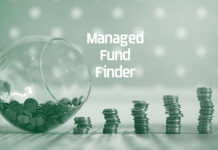
As published in The Australian on Saturday 25 April 2020
Australia’s fledgling retail corporate bond market hit a speed bump this week as one of the best known companies in that space, Virgin Australia, went into administration.
Unlike share investing, bond investing is all about the solvency of the bond issuer. What happens next to retail “mum and dad” investors who held Virgin Australia bonds will have repercussions for years to come.
Virgin shareholders will be wiped out and I would expect unsecured creditors, including those in the ASX listed high-yield bonds, to take a significant haircut.
In theory, stakeholders should not complain. Airlines are risky businesses, requiring huge capital outlays, subject to ruthless, competitive price wars given commodity-like services, which are alsoYet few — other than seasoned high-yield bond investors — would have foreseen the strife COVID-19 has caused.
Essentially, when you get tough times high-yield bonds tend to act like the underlying shares and in the very worst times they get wiped out like the shares. exposed to oil price and US dollar volatility.
Yet few — other than seasoned high-yield bond investors — would have foreseen the strife COVID-19 has caused.
Essentially, when you get tough times high-yield bonds tend to act like the underlying shares and in the very worst times they get wiped out like the shares.
In the case of Virgin Australia bonds the presence of sovereign-backed shareholders such as the Etihad group of Abu Dhabi provided comfort, while the very attractive 8 per cent yield looked too good to be true. And indeed that turned out to be the case.
A quick glance at the company’s financial statements before investing in the ASX-listed bonds would have revealed its massive debt and poor profitability.
My concern here is: did people really know what they were buying? Did the stockbrokers who distributed the bonds to mums and dads make them fully aware of their subordinated position in the creditors’ queue?
Don’t get me wrong, I’m all for making all bonds more accessible in Australia. But the fact is few are available on the ASX and I don’t think there’s anywhere near enough education. Unlike shares, bonds do not all act in the same way.
If you are a high-yield bond investor, your position in the creditors’ queue is vital. It can be the difference between getting all of your capital back or none of it.
Investors in the Virgin Australia bond were behind secured creditors such as lease finance creditors with leases secured over aircraft to the tune of $1.57bn. Under administration, these creditors would be expecting to be repaid all of their capital.
Equal ranking claims of the ASX listed bonds include other unsecured creditors such as Virgin Australia’s existing US dollar unsecured notes due in 2021. The amount here is listed as $1.82bn.
Lower ranking security claims were minimal, with ordinary equity shown as negative $111m in the prospectus. In other words, there was no buffer in the event of a wind-up of the company.
Details of Virgin Australia’s creditors’ queue were listed in the prospectus and hopefully investors took the time to read it.
Now starts the task of the administrator working out the best way forward for the company.
Prospective buyers will be weighing up the value of the assets such as the aircraft, loyalty program, existing market penetration, routes and the price it might be prepared to pay for the company.
The best outcome for all stakeholders is for the administrator to find a buyer. But if none is forthcoming, and the government continues to deny aid, the company could be forced into liquidation, where individual assets are sold to the highest bidder.
Moody’s aptly describes the predicament for creditors in its April 21 report, available on Virgin Australia’s website. It states: “The key issue for existing creditors will be the haircut they are requested to take in a restructure, relative to the risk of putting the company into liquidation with uncertain recovery prospects.”
The higher the agreed price, the more funds available for creditors, but it’s unlikely unsecured lenders will get full repayment of their capital.
There is a recent example of an ASX-listed high-yield bond and company that went into administration. As it happens Vaughan Strawbridge, the appointed administrator for Virgin Australia, was also a joint administrator for Axsesstoday.
Negotiations were complex but simply, under a deed of company arrangement, all secured Axsesstoday lenders were paid in full and unsecured investors were paid about 34c in the dollar.
Fingers crossed the administrator finds a buyer willing to pay enough so that unsecured creditors get some of their capital back, but it could take a while.





























